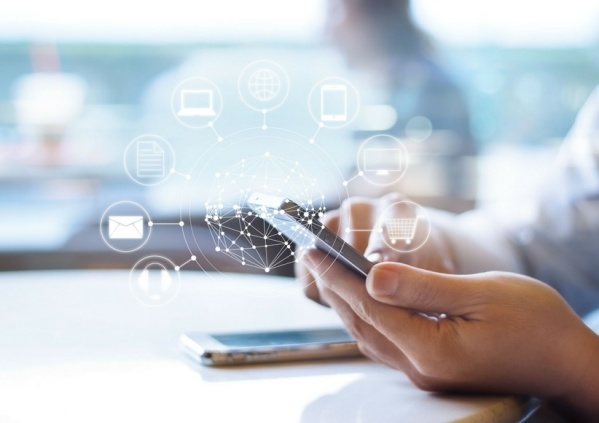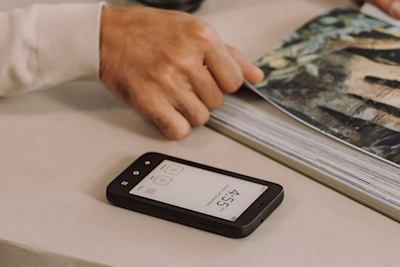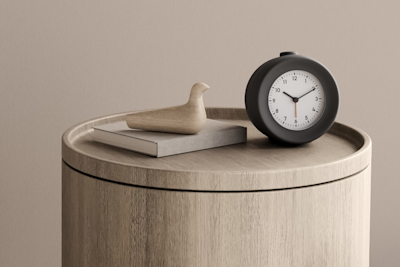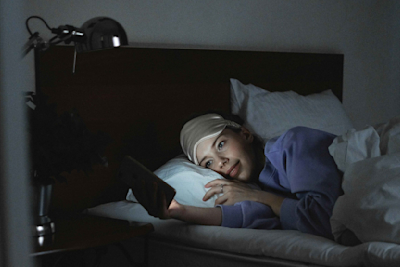
Are we too dependent on our smartphones?
Are humans too dependent on technology?
If you're like most people, you probably use your smartphone to check email, browse social media, watch videos, and play games. Everywhere you go, everyone you see is on their phone. Whether messaging back and forth with their friends, browsing the internet, scrolling through social media, or watching their favorite show, the cell phone is now a fixture of modern society.
However, as much as we all depend on our devices for communication and entertainment, it can be easy to become too reliant on them. For many of us, our smartphone is the first thing we see each morning and the last thing we see before our head hits the pillow. In fact, it's gotten so serious that many experts believe that excessive smartphone usage can negatively impact our health and relationships.
Our dependence on technology
Our dependence on digital tech is nothing new, however it's gotten worse over the last 10-15 years. According to a study conducted by Deloitte, covering 31 countries on 5 continents with 53,000 respondents, nearly half of the individuals surveyed said they were constantly connected to their smartphones, with 89% reporting that they could not go an entire day without using their mobile device. This is even more concerning when you consider that one-third of respondents said they check their phone within five minutes of waking up in the morning and nearly half of respondents reported waking up to check their phone in the middle of the night, after going to sleep.
Technological singularity
You may have heard the term "technological singularity" before. The term refers to a hypothesized moment in time when artificial intelligence and other technologies will advance so rapidly that technological growth becomes uncontrollable and irreversible, leading us into uncharted territory.
This is an interesting concept, however what does it mean in the real world? Technological singularity is more than a concept, however. It's already happening. The rapid growth of AI and other technologies have led some people to fear that we are on the verge of creating machines which will surpass humans in intelligence and become essentially self-aware. This describes an as-yet-unpredictable situation, resulting in unforeseeable changes to human civilization.
Some may fear that if we are going through this technological singularity, then our lives could potentially become more complicated and less efficient, as we struggle to keep up with new technologies.
Mudita Kompakt is the best minimalist phone
Our mobile technology habits
Since digital devices have become more and more commonplace, we have been relying on them to get through our lives. According to a study by the University of California, San Diego, the average person checks their phone every 12 minutes. A survey by the Global Web Index reveals that the “typical” digital technology user now spends almost 7 hours per day using digital devices for non-work or school purposes. Three-quarters of that time is spent using social media apps or media consumption. This means that we spend more than 40 percent of our waking life online. The study from the University of California, San Diego also found that people who use their mobile devices while in bed are twice as likely to get less sleep than those who don’t. In fact, about one in five respondents said they would rather give up sex than their mobile device for a week! These habits can have adverse effects on our health, such as making us more prone to depression, anxiety or stress.
Your phone can wait.
If you’re a smartphone owner, the first thing to do is to set aside some time without your device. If it's difficult for you to go without your phone while at home or at work, then try leaving it behind when going out with friends and family. As an experiment, leave your phone in another room (or better yet, another building) for an hour or so and see how long it takes before you start getting anxious about not having access to it. You can also use a Faraday cage, like Stolp, to block all signals from coming in or out of your phone. This way, you limit the distractions caused by it. Keep doing these mini digital detoxes regularly on days and nights when you know there are no emergencies that require immediate attention from you or from other people. You might be surprised by how much less stressful life can be if you stop being so tethered to technology!
Stolp - Disconnect to reconnect
Constantly checking your phone can be a cause of anxiety and sleeplessness.
Constantly checking your phone can be a cause of anxiety and sleeplessness.
It's important to unplug, especially before bedtime.
There is such a thing as too much tech time.
It's not just about the device you're using, it's also the content you consume through it and how you feel after consuming it that counts.
It's important to unplug, especially before bedtime.
Sleep is essential for your mental health, physical health and overall well-being. In fact, sleep deprivation can affect your memory, concentration, mood and energy level. But not only that: Studies have shown that people who get 7-8 hours of sleep each night have a lower chance of getting depressed or suffering from anxiety disorders than those who don't get enough shut eye. According to the National Sleep Foundation's recommendations for adults over age 18 (who should be sleeping 7-9 hours per night), 90% of individuals aren't meeting their daily recommended amount of sleep!
So, what can you do about it? How can you start getting enough shuteye? There are many things we could explore here—like why so many people suffer from insomnia despite having no major medical issues like heart disease or depression—but let's focus on one simple thing: unplugging at night.
Get your Mudita Harmony at Mudita.com
There is such a thing as too much tech time.
It's easy to get sucked into the digital world. After all, we're constantly surrounded by gadgets and technology. It's a part of our everyday lives and has become so ingrained in our culture that it can be hard to imagine being without them.
But are we too dependent on our smartphones? Some people believe that we've reached a point where technology is no longer useful—it's detrimental to society instead. They claim that it makes us more anxious, decreases productivity at work and takes away from time spent with friends and family. It turns out there may be some truth behind these claims: according to several studies, there really is such a thing as too much tech time!
According to experts who have studied this issue closely, many of us experience an addictive-like reaction when using social media sites like Facebook or Instagram (or even just text messaging). These platforms deliver bursts of dopamine when users get likes or comments—which creates an "I need more" feeling that keeps people coming back for more frequent doses throughout the day. This pattern can become incredibly destructive if unchecked because it causes us to spend more time online than interacting with real human beings face-to-face!
We connect by being in the moment together.
The problem with our reliance on technology is that it causes us to disconnect from ourselves and each other. It makes us feel less connected and more alone, which is why we turn to social media and cell phones in the first place. We can all take an hour or so a day to be present, connect with each other, have real conversations (not just texting) and ultimately feel more connected as a result.
Another thing that helps is getting away from our devices for a while! We all need time away from technology because it can be very addictive and not only does it make us feel disconnected from ourselves but also from everyone around us including family members.
You may still want to leave your smartphone at home sometimes or switch it to silent when you have time with friends and family.
If you’re going to be with friends and family, it’s important to be present. You don't have to disconnect entirely, but it can be helpful if you leave your phone at home or switch it to silent mode when spending time with people who are close to you. There are many ways that you can still stay connected with people even if they aren't right next to you, so try reaching out through other means than just texting or calling on the phone. If they're nearby, consider stopping by in person rather than sending a text message or making a call.
It may also help if everyone involved agreed beforehand that no one will use their phones during certain activities like dinner parties or after-work get-togethers; this way everyone knows what the plan is ahead of time.
A Mindful Mobile Experience
In response to the growing concerns about smartphone dependency, in 2021, Mudita introduced the world to Mudita Pure and now, we're raising the bar with Mudita Kompakt. Our new minimalist phone, it's not another dumbphone. It's an E ink phone designed to provide a more mindful mobile experience by incorporating features that prioritize user well-being.
With its minimalist design, reduced distractions, and focus on essential functionalities, Mudita Kompakt aims to help users maintain a healthier balance with technology. For more information, head to mudita.com/kompakt
There's more to life than just pixels.
When we live in a world where we spend most of our time staring at screens, it's easy to forget that there's a lot more to life than just pixels.
If you're feeling anxious about your phone, it might be time to take a break. This doesn't mean that you have to go cold turkey; rather, it means finding ways to use your smartphone in less distracting ways. There are other ways to enjoy the world that don't involve staring at a screen. For example, why not set up a Do Not Disturb schedule on your phone so that you can leave notifications off at certain times of the day? Or maybe try turning off push messaging and email alerts so they don't interrupt what's going on in front of you right now?
If you enjoyed reading this article, and would like to to learn more about living a more technologically mindful lifestyle, please take a moment to read our other posts on our blog:
Mudita Kompakt is designed to help you focus on what truly matters; real-life moments, experiences, and meaningful connections. It’s about creating technology that’s always there when you need it and discreet when you don’t.
Related stories

It’s official! Kompakt is now shipping to North American Backers
The North America Optimized Mudita Kompakt, our minimalist phone designed for mindful living, is now shipping. See what to expect and how to track your order.

Rediscover Peaceful Mornings with an Analog Alarm Clock
Improve your sleep and well-being by replacing your phone with an analog alarm clock. Discover how Mudita Bell supports a digital detox and peaceful mornings.

Why You Can’t Sleep (And What to Do About It)
Struggling with sleepless nights? Discover what's keeping you awake & learn practical solutions from Mudita to improve your sleep quality.
If you'd like to receive the best stories from our blog, keep up to date with our progress and get notified about our product releases and special discounts.